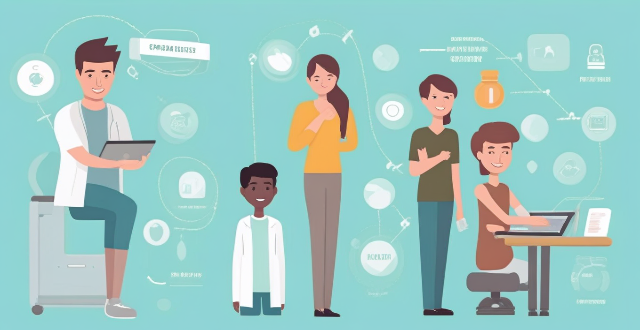Reproductive health is a crucial aspect of overall women's wellness. It encompasses the physical, emotional, and social well-being related to the reproductive system. Some key aspects of reproductive health include menstrual health, pregnancy and childbirth, contraception, screening and prevention, self-esteem, mental health, relationships, education and empowerment, access to care, and gender equality. By addressing these various aspects of reproductive health, we can ensure that women lead healthy, fulfilling lives both physically and emotionally.

The Role of Reproductive Health in Overall Women's Wellness
Reproductive health is a crucial aspect of overall women's wellness. It encompasses the physical, emotional, and social well-being related to the reproductive system. In this article, we will discuss the various aspects of reproductive health and how they contribute to a woman's overall wellness.
Physical Well-being
Reproductive health plays a significant role in maintaining a woman's physical well-being. Some key points include:
* Menstrual Health: Regular menstrual cycles are an indicator of good reproductive health. Irregular periods, heavy bleeding, or painful cramps can be signs of underlying issues that require medical attention.
* Pregnancy and Childbirth: A healthy reproductive system ensures successful conception, pregnancy, and childbirth. Proper prenatal care and postnatal support are essential for the mother's recovery and the baby's growth and development.
* Contraception: Access to safe and effective contraception methods allows women to plan their families according to their needs and preferences, reducing the risk of unintended pregnancies and abortions.
* Screening and Prevention: Regular screening for sexually transmitted infections (STIs) and cancers like cervical and breast cancer is crucial for early detection and treatment, reducing the risk of complications and improving survival rates.
Emotional Well-being
A woman's emotional well-being is closely linked to her reproductive health. Some key factors include:
* Self-esteem: Good reproductive health can boost a woman's self-esteem by allowing her to make informed decisions about her body and sexuality. This includes choosing when to start or expand her family, as well as having control over her own fertility.
* Mental Health: Conditions such as polycystic ovary syndrome (PCOS), endometriosis, and infertility can have a significant impact on a woman's mental health, leading to anxiety, depression, and stress. Proper diagnosis and treatment can help manage these conditions and improve emotional well-being.
* Relationships: A healthy reproductive system can positively impact a woman's relationships with her partner, family, and friends by promoting open communication, trust, and mutual respect.
Social Well-being
Reproductive health also plays a vital role in a woman's social well-being. Some key aspects include:
* Education and Empowerment: Educating women about their reproductive rights and options empowers them to make informed decisions about their bodies and futures. This includes access to accurate information on topics such as contraception, pregnancy, childbirth, and sexual health.
* Access to Care: Providing accessible and affordable healthcare services for women ensures that they receive the necessary care for their reproductive health needs. This includes regular check-ups, vaccinations, and treatment for any reproductive health issues.
* Gender Equality: Promoting gender equality in all aspects of society, including reproductive health, helps create a more inclusive environment where women feel valued and respected for their contributions to society.
In conclusion, reproductive health is an integral part of overall women's wellness. By addressing the various aspects of reproductive health, we can ensure that women lead healthy, fulfilling lives both physically and emotionally.